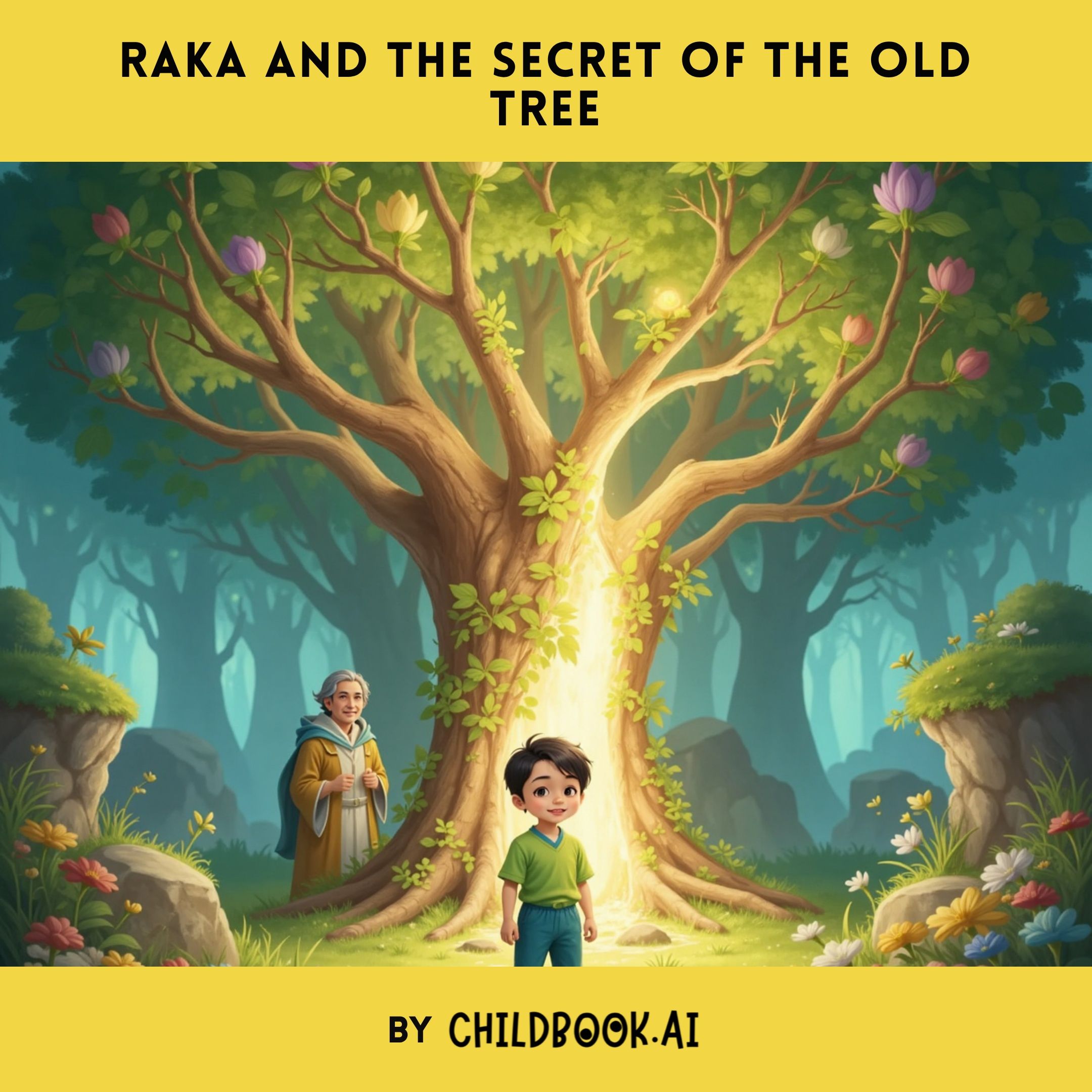

That day, the sky over Jakarta was gray, and Raka sat quietly in his small apartment, surrounded by boxes. He didn’t want to move. His parents, both working for the Ministry of Environment, had to go to a distant village suffering from drought. And Raka had no choice but to come along.
When they arrived, the village felt strange. Dry earth cracked under his shoes. There was no internet, no games—just fields and hills and silence. Raka was upset. He missed his city life.

Village kids tried inviting him to play, but he refused. One afternoon, as the laughter of children echoed across the field, Raka wandered away and saw a large, shady old tree standing at the edge of the clearing.
“That tree is haunted!” one kid warned.

But Raka didn’t care. He sat beneath the tree, put on his music, and slowly drifted into sleep.

In his dream, Raka woke up in a quiet valley. The trees were withered, the ground dry. There was no one around. He called out, but no one answered—only the wind.
Then, from the mist, a figure appeared: tall and cloaked in leaves, eyes glowing green. “I am the Guardian of the Old Tree,” it said. “To return home, you must complete two missions. Each will teach you something humans have forgotten.”

The Guardian showed him a map. “The water has stopped flowing. Find the true path to bring it back.”
Raka saw three paths: one smooth and paved, one dusty and full of footprints, and one rough and overgrown with roots.
The first led to a dry lake. The second, a cracked well. But the third, though difficult, ended at a spring hidden beneath the earth.

Raka dug—and water burst out. Life returned to the land. Flowers bloomed. The Guardian smiled.

The Guardian gave Raka a seed. “Plant this tree in the right place,” it said. “It must grow with sincerity, in clean soil, and be watered not only with water, but feeling.”

Raka looked around. A hilltop, a trash-covered field, and simple ground near the stream. He chose the third. With a quiet prayer, he planted the seed, thinking of his friends, the trees, and the joy of play.
The ground rumbled. A giant tree rose from the earth, full of life. The Guardian whispered: “You have awakened the valley—and your heart. Now, return.”

Raka opened his eyes. The sun was lower in the sky. The tree still stood above him.
“Are you okay?” a village child called out.
Raka smiled. “Yeah. Let’s play.”
But something in him had changed. While they ran and laughed, Raka The Boy looked at the dry fields around them. “Why is the water low here?” he asked.
“Because so many trees were cut,” someone said.

That night, Raka told his parents everything—the valley, the missions, the Guardian. At first, they laughed. But when he described the land, the winds, the soil, his father paused.
“This… makes ecological sense,” he said.

The next day, Raka’s parents reviewed their research. They discovered the villagers had been planting on the wrong land—cutting shade trees and using a water catchment zone for farming.
It was nature, misunderstood.
Raka and his parents gathered the villagers. With pictures and stories, they explained the mistake—and shared Raka’ dream.
The villagers remembered how the land used to be. Together, they agreed to replant trees, protect the springs, and grow new, resilient crops.

Weeks passed. Rain returned. The streams filled. The land healed.
One morning, the villagers held a thanksgiving ceremony—dancing, sharing food, and singing old songs. Raka even joined a drawing contest, sketching the old tree that had started it all.
As they packed to return to the city, Raka looked back at the hills. He didn’t say much, but he smiled.
The valley was green again.
And somewhere, deep in the roots of the old tree, he knew the Guardian was still watching.